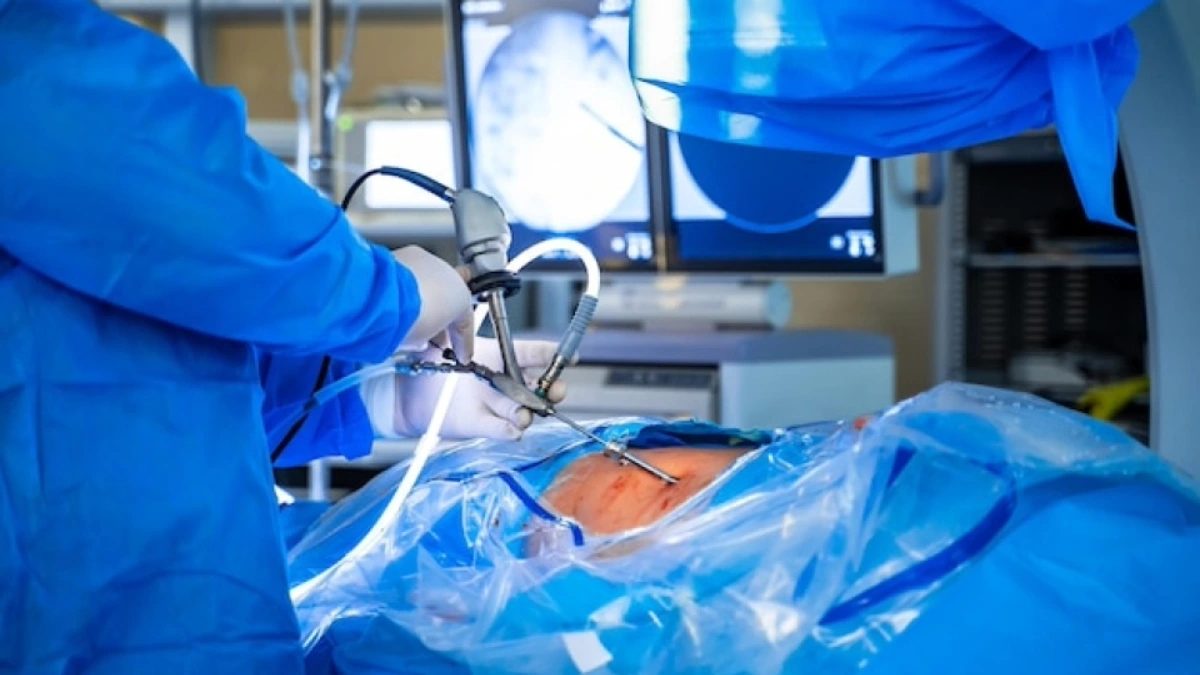Laparoscopic surgery for endometrial cancer stands as a leading approach in managing and treating endometrial cancer. Moreover, it provides a beacon of hope for countless women across the globe. This minimally invasive technique has transformed the landscape of gynaecological oncology, offering a pathway to healing with reduced recovery times and diminished postoperative discomfort. Furthermore, at Avicenna International Hospital, our commitment to embracing treatments like laparoscopic surgery for endometrial cancer underscores our dedication to your health and recovery.
Understanding Laparoscopic Surgery for Endometrial Cancer
Endometrial cancer, a formidable adversary in women’s health, necessitates a strategic and effective treatment plan. Laparoscopic surgery, inclusive of both traditional laparoscopy and advanced robotic-assisted techniques, emerges as a superior choice for many. These methods not only promise a less invasive approach but also bring forth the question many patients pose: “Can endometrial cancer be removed laparoscopically?” The answer is a resounding “Yes,” resonating with both promise and positivity.
The Superiority of Minimally Invasive Procedures
Comparing laparoscopic and robotic hysterectomy, one can’t help but notice the significant advantages these minimally invasive procedures offer over traditional surgery methods. The precision afforded by these techniques means that surgeons can operate with unprecedented accuracy. As a result, reducing the risk of complications and enhancing the overall survival rate after hysterectomy for uterine cancer.
Survival Rate and Recovery Time of Laparoscopic Surgery for Endometrial Cancer
One of the most pressing concerns for patients is the survival rate after such a pivotal surgery. Outcomes consistently support the effectiveness of laparoscopic surgery in managing endometrial cancer and in contributing to a commendable survival rate. Coupled with a significantly reduced uterine cancer surgery recovery time, the benefits of opting for this surgical approach become undeniably apparent.
Side Effects and Management
As with any surgical procedure, understanding the potential uterine cancer surgery side effects is crucial. Our medical team at Avicenna International Hospital prides itself on transparent communication. They ensure that you’re informed about all facets of your treatment plan, including side effects and their management.
New Treatments for Endometrial Cancer
As medical science progresses, new treatments for endometrial cancer come to the forefront, offering even more hope. These innovations, including targeted therapies and advanced surgical techniques, complement laparoscopic surgery, providing a comprehensive approach to treating endometrial cancer.
Endometrial Cancer Treatment by Stage
Endometrial cancer treatment is meticulously planned with consideration to the stage of the cancer. Early-stage cancer may be effectively managed with surgery alone. In addition, advanced stages might necessitate a combination of surgery, radiation, chemotherapy, and hormone therapy.
The Role of Patient Testimonials
Hearing firsthand accounts from women who’ve walked the path of laparoscopic surgery for endometrial cancer at Avicenna International Hospital can be incredibly reassuring. These genuine testimonials reflect not only the success of the procedures but also the compassionate care and support provided throughout the journey to recovery.
Why Avicenna International Hospital?
Choosing Avicenna International Hospital for your laparoscopic surgery for endometrial cancer means entrusting your health to a team of experts who not only excel in medical excellence but also in delivering compassionate care. With a focus on reducing recovery time and enhancing survival rates, we are dedicated to ensuring that our patients receive the best possible care. Trust us to deliver the most effective and compassionate treatment for uterine cancer. And, let us help you take the first step towards a healthier future by contacting us.
Considering individual patient profiles, laparoscopic surgery, including robotic-assisted hysterectomy, often emerges as the best option due to its minimally invasive nature and promising outcomes.
Both options have their merits, and the choice often depends on the specific circumstances of the patient’s condition, including the cancer’s stage and location.
Surgeons can visually inspect tissues during surgery; however, definitive cancer diagnosis and extent are typically confirmed through histopathological examination post-surgery.
Beyond advanced surgical techniques, new treatments include hormonal therapies, immunotherapies, and targeted treatments. They are tailored to the specific genetic makeup of the cancer.







